All you need to know about Kombucha + Recipe
Ever since my health scare back in 2016, I had to rethink my way of living. Nowadays, many processed foods are a health risk. GMO’s are everywhere, pesticides are a must on our fruit & vegetables and we wonder why so many of us get sick?!
Unfortunately, this is not something that can be fixed with a diet change alone, because there will always be that one fruit or vegetable that you grabbed out of the “less expensive” basket so you could make chill’s or a mouth-watering African Peanut Stew with, and the organic, non-GMO kind was out.
But there is hope!
I love how our bodies work, they can heal themselves and also tell us when something isn’t right. So, the best way to approach a new lifestyle is to Start Listening to our bodies.
After I eliminated Gluten, Dairy, Sugar, Alcohol, and Caffeine, my body started showing improvement. No more cramps, diarrhea, and a weakened immune system. My mood is much better, and I have no longer depression or anxiety attacks, AMEN to that!
So, why did I add kombucha to my diet? Simple, to heal my gut, filter and detox me from the daily sneak-ups?

Kombucha brewing is serious business ya’ll, if you don’t know what you’re doing, you can hurt you’re gut rather than heal it. That’s why I went with some friends to a kombucha class before I started brewing my first kombucha tea.
To make it easier for those of you that don’t have the option of a kombucha class here is everything I learned in and out of class.
8 Things You Need To Know Before Starting To Brew Kombucha
If you haven’t tried kombucha, yet! You can recognize it by its vinegary effervescence. Kombucha tastes something like a hybrid beer-tea with a cidery undertone, and for the unprepared tongue, it can be initially off-putting.
So much so that many either love it or hate it, and those who love it can’t get enough of it.
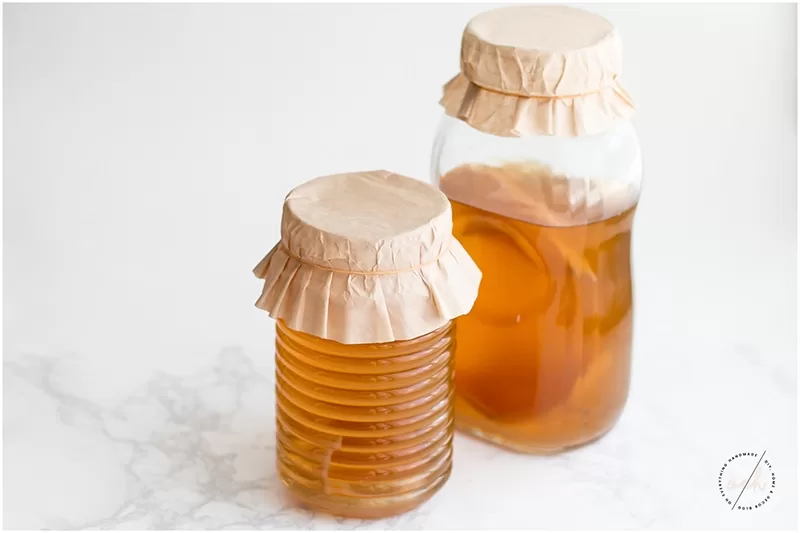
So, what exactly is Kombucha?
Kombucha (come-BOO-chuh) is a fermented mixture of yeast and bacteria but, it is NOT a mushroom! Kombucha is made by fermenting yeast and bacteria with black tea or green tea, organic sugar, and other ingredients.
It is slightly sweet, yet tangy and sharp, almost vinegary, with a little bit of fizz. A bit like a healthy soda my kids would say!
- “Scoby” is actually an acronym: Symbiotic Culture Of Bacteria and Yeast. A scoby is the living home for the bacteria and yeast that transform sweet tea into tangy, fizzy kombucha
- Fermentation: is 1-3 weeks depending on your environment (68-85ºF, out of direct sunlight)
- Teas you can use are: Black tea, green tea, white tea, oolong tea, or an even mix of these make especially good kombucha.
- Sugar to use: 1/2 to 1 cup sugar – Use only “cane sugar” to avoid GMO beet sugar. Concerns about trace toxins in white sugar processing should be considered.
- How to cover your Kombucha: A coffee filter or clean cotton cloth for covering your kombucha container is best, and an elastic band to secure it to the jar.
- What to look for: Bubbles, jelly-like masses, and gritty brown-colored residue are good; fuzzy black or green spots of mold are bad. The liquid in the jar should always smell fresh, tart, and slightly vinegary (this will become more pronounced the further you are in the process); if it smells cheesy, rancid, or otherwise off-putting, then something went wrong and you need to discard this batch and start again with a fresh batch.
- What happens to the sugar in my Kombucha: The sugar in Kombucha is for the culture to consume, not for you. When done fermenting, there will be about 2-6 grams per 8 oz glass of unflavored Kombucha. If fermented longer, say for 3 weeks or longer, sugar levels in Kombucha may be even lower.
- Important tip: ALWAYS sterilize ALL your dishes, tools and containers before preparing and bottling your kombucha! This is the number one reason for kombucha fail.
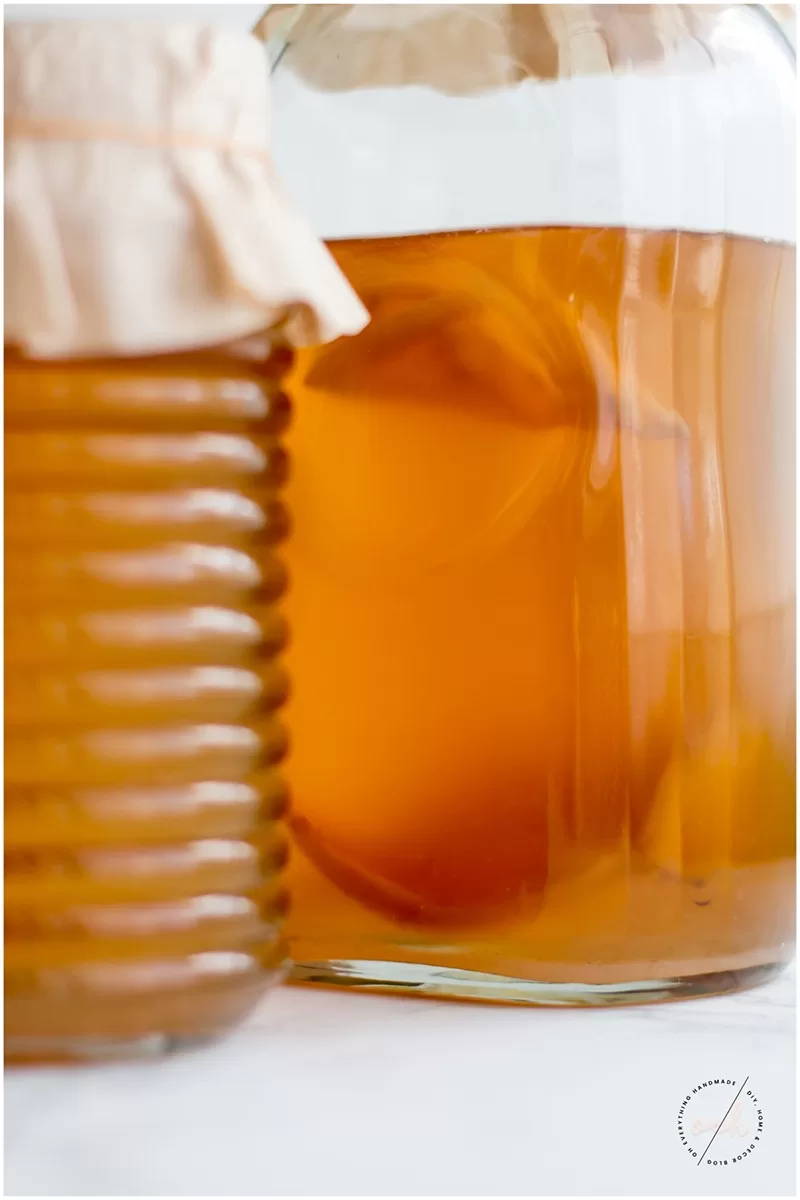
That is a lot of info, so now all we have left are the health benefits and potential side effects. Some of us deal with certain health problems, it’s important to review all facts so it’s fair for all of us.
Here are the top 7 health benefits of kombucha, based on scientific evidence.
- Is a Rich Source of Probiotics – A large number of probiotic bacteria is also produced during fermentation. Probiotics provide your gut with healthy bacteria. This bacteria can improve many aspects of health, including digestion, inflammation and even weight loss.
- May Provide the Benefits of Green Tea – Studies show that drinking green tea regularly can increase the number of calories you burn, reduce belly fat, improve cholesterol levels, help with blood sugar control and more. Studies also show that green tea drinkers have a reduced risk of prostate, breast, and colon cancer (1, 2, 3, 4, 5, 6, 7).
- Contains Antioxidants – Antioxidants are substances that fight free radicals, reactive molecules that can damage your cells. Kombucha, especially when made with green tea, appears to have antioxidant effects in your liver. Rat studies consistently find that drinking kombucha regularly reduces liver toxicity caused by toxic chemicals, in some cases by at least 70% (8, 9, 10, 11).
- Can Kill Bacteria – Like the polyphenols in tea, acetic acid is able to kill many potentially harmful microorganisms (12). Kombucha made from black or green tea appears to have strong antibacterial properties, particularly against infection-causing bacteria and Candida yeasts (13).
- Kombucha May Reduce Heart Disease Risk – Rat studies show that kombucha can greatly improve two markers of heart disease, “bad” LDL and “good” HDL cholesterol, in as few as 30 days (14, 15).
- Manage Type 2 Diabetes – A study in diabetic rats found that kombucha slowed down the digestion of carbs, which reduced blood sugar levels. It also improved liver and kidney function (16).
- May Help Protect Against Cancer – In test-tube studies, kombucha helped prevent the growth and spread of cancerous cells due to its high concentration of tea polyphenols and antioxidants (17, 18). It’s thought that the polyphenols block gene mutation and growth of cancer cells while also promoting cancer cell death (19).
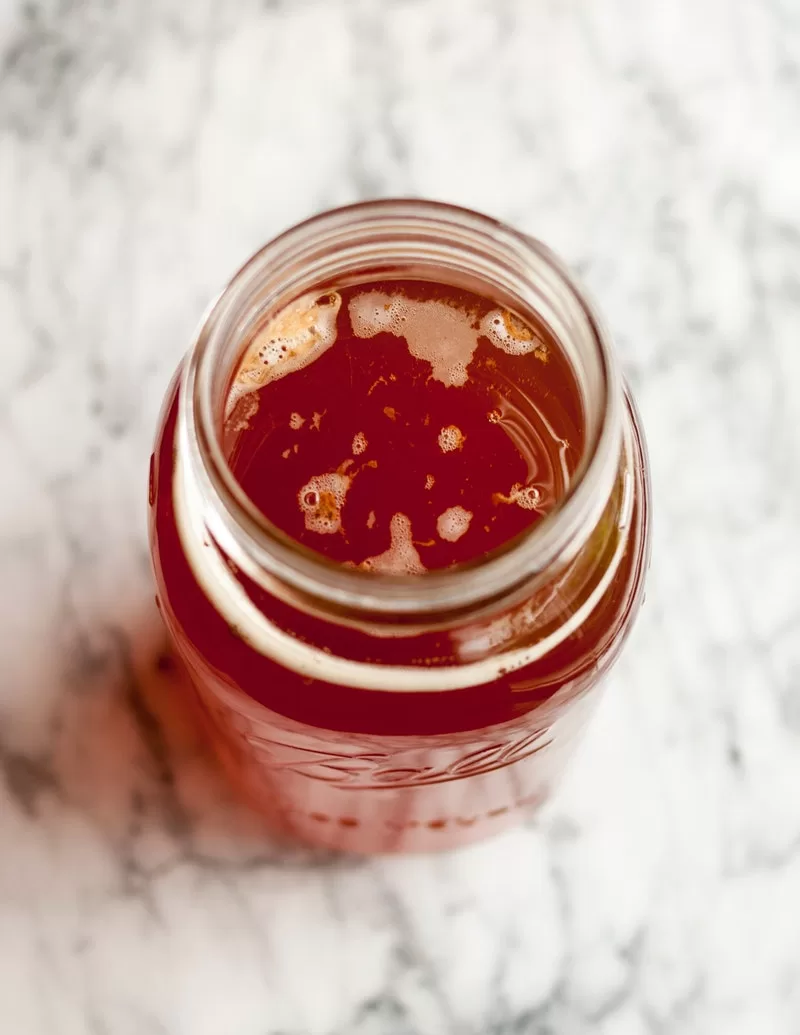

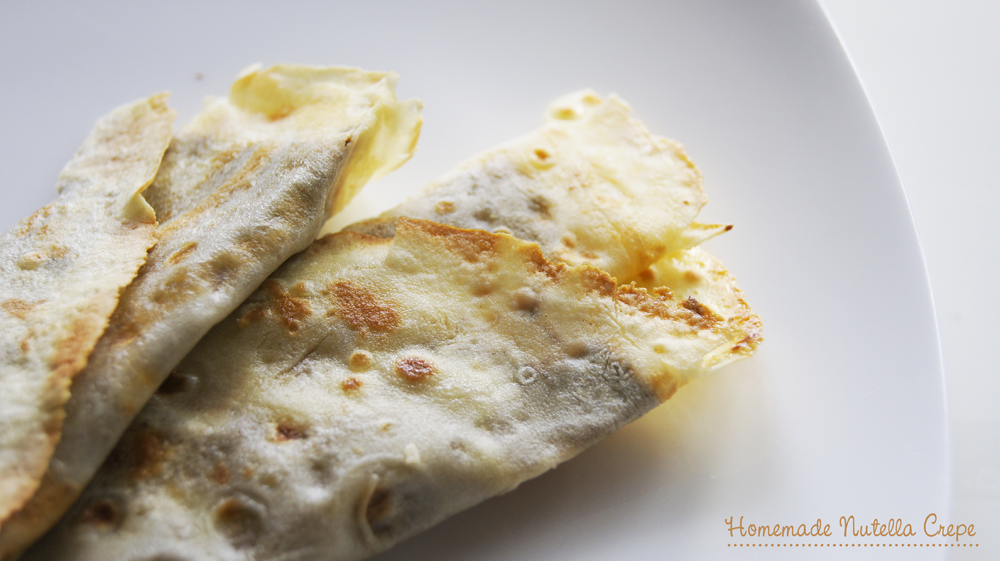

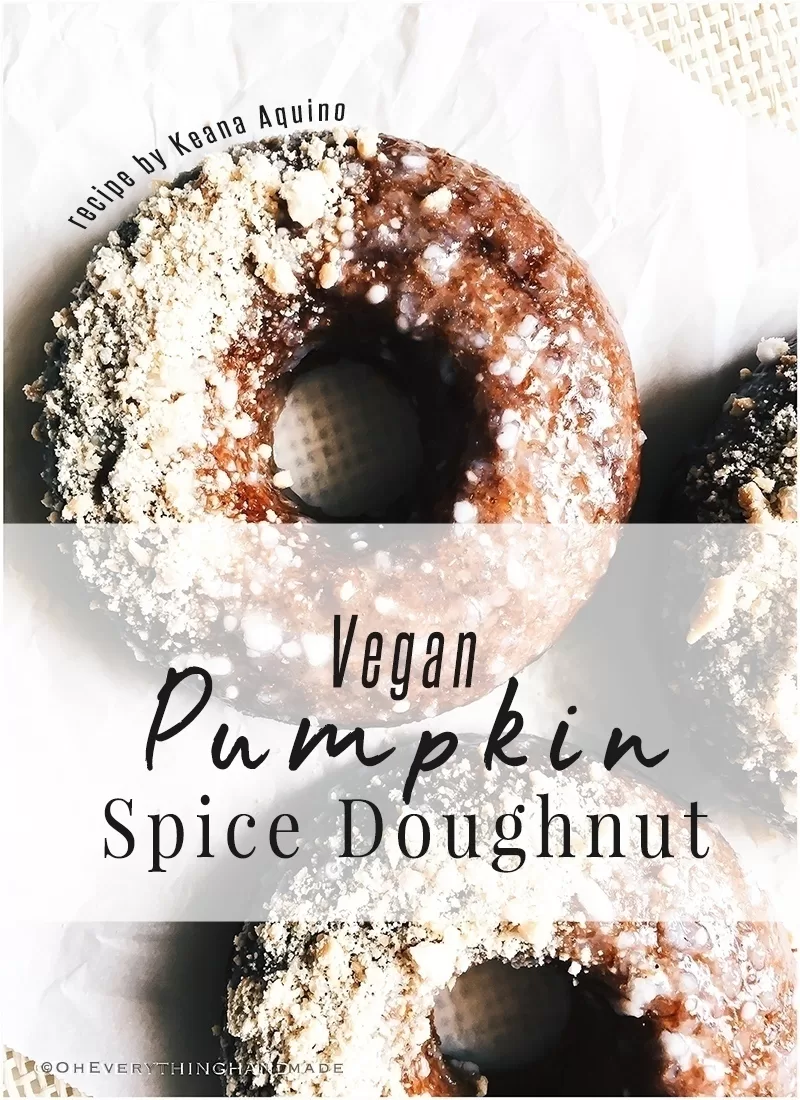


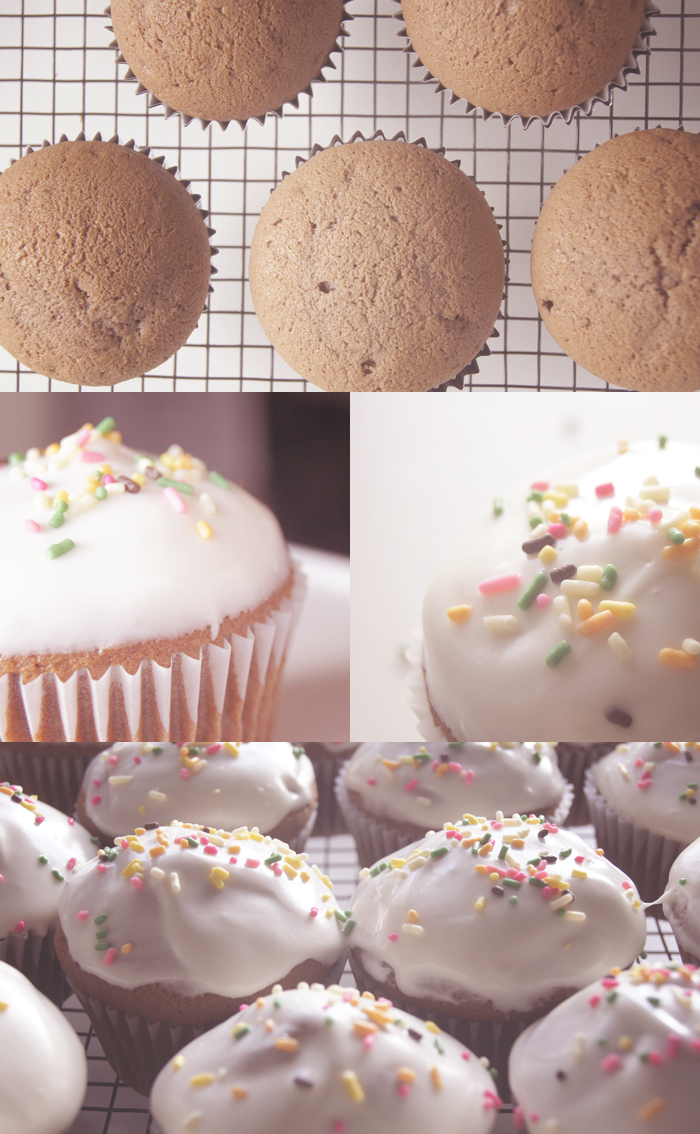
Wow, Betty. I didn’t know Kombucha was a good source of ProBiotic’s. I am going to make this today, looks delicious 🙂